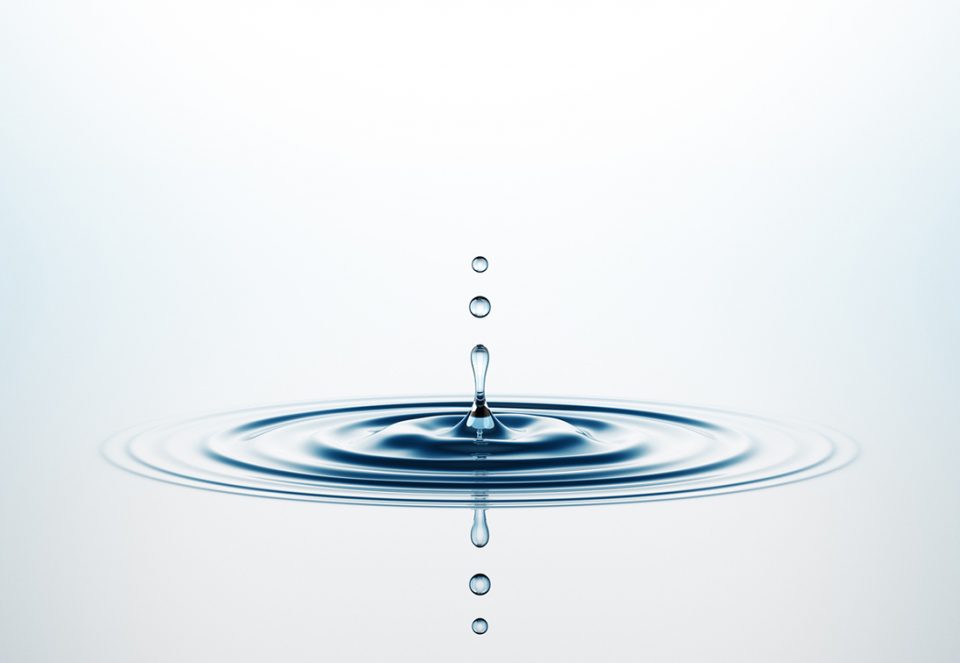Editor’s note: This article is the first in a four-part series exploring the relevance of Martin Luther’s catechism for our lives today.
In his Small Catechism, Martin Luther asks, “What then is the significance of such a Baptism with water?”
He then answers, “It signifies that the old person in us with all sins and evil desires is to be drowned and dies through daily sorrow for sin and through repentance, and on the other hand that daily a new person is to come forth and rise up to live before God in righteousness and purity forever.”
Through our baptism, each day is an opportunity to be made new. Each day, Luther says, we are to repent, wash away the muck, clean the proverbial slate and live in the present, pure and righteous before God. Water brings about change.
We don’t always do this, of course. We tend to wake up with the same issues that accompanied our minds to bed (especially the ones that kept us from sleeping). We hang on to our emotional interactions with others—especially the highs and lows.
At best, we strive to be new in the sense that we place ourselves in God’s hands and let the Holy Spirit be our companion when we begin a new day. Or, as Romans 12 puts it, “Do not be conformed to this world, but be transformed by the renewing of your minds, so that you may discern what is the will of God—what is good and acceptable and perfect.” (Hmm … perhaps Luther was paraphrasing a bit in his explanation of Baptism.)
To be careless with water is poor stewardship because nearly everything in life has water in, with and under it.
Transformation and renewal happen when we notice our present reality, especially the state of our world and the way we steward the resources God has entrusted to us—including water.
It is no accident that water would become the means by which God is “in, with and under” all things. Theologians call this “panentheism,” the belief that God is present in all things—from the love we share with others to the fertilizer we spread in our gardens to make them grow.
Water is precious, but we American Lutherans also live under the illusion that it is plentiful (folks from the Southwest notwithstanding). I grew up in and around the Great Lakes, which represents 20 percent of the world’s freshwater, so it never occurred to me that leaving the faucet running while I brushed my teeth was a waste of over 2 gallons. Now I know better.
To be careless with water is poor stewardship because nearly everything in life has water in, with and under it. Anyone who slogged through an earth-science class in middle school knows this, but we seldom stop to think that while the world’s human population continues to explode (current estimates predict we will reach 8.5 billion people by 2030), the amount of freshwater on the planet remains more or less constant.
Water baptizes so much more than baby Lutherans—the book of Revelation promises that an indescribable river of life awaits us in the New Jerusalem someday.
Although technological advances in desalinization have done miracles in places like Palestine/Israel, where about half of the tap water is processed from the Mediterranean, we still have a long way to go, which makes how we steward water all the more urgent.
A good place to start might be with the renewal of our minds: Think about the water that courses through all things, just as God is in, with and under all things. The quarter-pound hamburger you ate yesterday was the result of about 110 gallons of water usage. The leaky faucet we leave unchecked can waste 3,000 gallons in a year, according to the Environmental Protection Agency. A cotton T-shirt needs approximately 700 gallons of water to exist. How many of those shirts reside in a dresser drawer and are never worn? Buying a new car? Nearly 40,000 gallons of water are needed to create all its components.
All the while, one out of every eight of our brothers and sisters on this planet does not have access to clean drinking water. We’re all connected through this larger water narrative, water for baptism, water that is all around us, water that reminds us that God the Creator is present in all times and places.
Water baptizes so much more than baby Lutherans—the book of Revelation promises that an indescribable river of life awaits us in the New Jerusalem someday. In the meantime, we should strive to be better stewards of this remarkable gift, because the Living Water is already in our midst.
Looking for ideas to better steward God’s gift of water? Here is a good place to start. And here is a decent Bible study about the ecological crisis of the Jordan River and how we are connected to it in so many ways.




